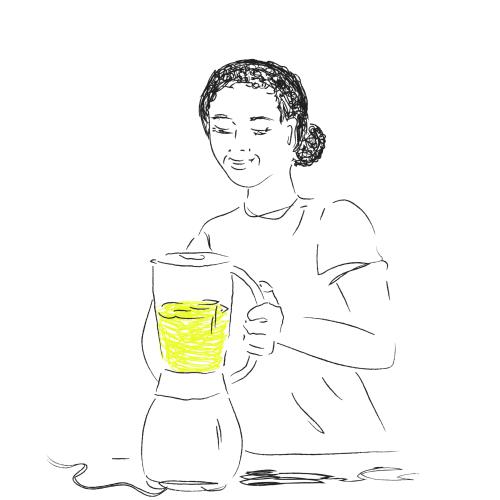WeLight showed a proactive and hands-on approach from the start
Signature(s)
Summary sheet
- Energy - Electricity, gas, steam and air conditioning supply
The project will finance minigrids in Madagascar to households, business and other infrastructure facilities without access to reliable electricity supply
The electrification programme will generate a significant social, development and environmental impact, while providing a sustainable and reliable supply to un-served or under-served local communities that are currently relying on polluting and expensive fossil fuels.
Although the mini off-grids to be financed are likely to be small, the promoter is required to implement them ensuring that the Environmental and Social Impact Assessment is carried out, in conformity with national law and the EIB environmental and social standards. To that end, the EIB has also assessed the promoter's capacity, approach and procedures to implement the project in line with the EIB's environmental and social standards.
The promoter has to ensure that implementation of the project is done in accordance with the EIB's Guide to Procurement.
Disclaimer
Before financing approval by the Board of Directors, and before loan signature, projects are under appraisal and negotiation. The information and data provided on this page are therefore indicative.
They are provided for transparency purposes only and cannot be considered to represent official EIB policy (see also the Explanatory notes).
Documents
News & Stories
Inside the project
How and Why
A solution for rural Africa
Why
- Madagascar is one of the poorest countries in the world
- Accelerating energy inclusion in rural Africa improves the lives of hundreds of thousands
- Investment in difficult business environments and riskier markets
- Extending the national grid is not financially viable and not likely to happen in the medium term
How
- Solar mini-grids are the most cost-effective option for rural electrification in Madagascar
- The mini-grids will comprise a solar PV system, battery energy storage, an electricity distribution network, and a meter for each consumer
- Electricity is available 24 hours a day, 7 days a week, with power covering the needs of villages, both residential and professional
Sectors & Countries
PLAY VIDEO
3:06

My life is getting easier and better
Related media
Fairness in the favelas
To halt illegal connections, Eletropaulo puts people in São Paulo’s favelas on its regular grid, promoting social inclusion, gender equality and social energy tariff
How to move it, move it
Madagascar’s road network is damaged each year by extreme weather linked to climate change. Building new roads and modernising existing ones helps connect isolated rural populations and enables the development of international ports in the north and south of the country.
Solar power for rural Africa
A scaled up off-grid model transforms access to solar power in rural Africa
Related projects and stories
Celebrating diversity, equity and inclusion at Luxembourg Pride Week
From July 6th to 14th, the EIB Group joined the 25th edition of the Luxembourg Pride week to celebrate the LGBTIQ community and the importance of diversity, equity and inclusion.
Photogallery
General enquiries and comments
The EIB is committed to open communication and encourages constructive stakeholder input regarding its activities.
Enquiries and comments concerning the EIB’s involvement in a project or the financing facilities, activities, organisation and objectives of the EIB, can be sent to the EIB Infodesk.
Alternatively, the EIB can be contacted through its external offices.
Queries regarding details of a specific project, in particular when it is under appraisal by the EIB, should preferably be addressed directly to project promoters.
Media enquiries
Media-related enquiries can be addressed to the EIB Press Office. Please also visit our Media information section.
Complaints mechanism
Any complaint regarding alleged maladministration can be lodged via the EIB Complaints Mechanism. The European Ombudsman acts as an independent external accountability mechanism of the EIB.
Zero tolerance against fraud and corruption
The EIB has a zero tolerance policy on fraud or corruption. To report allegations of fraud and corruption relating to EIB-financed projects, please contact the Fraud and Investigation division. All complaints will be treated as strictly confidential and handled in line with the EIB investigation procedures and the Anti-Fraud Policy.
Related publications







